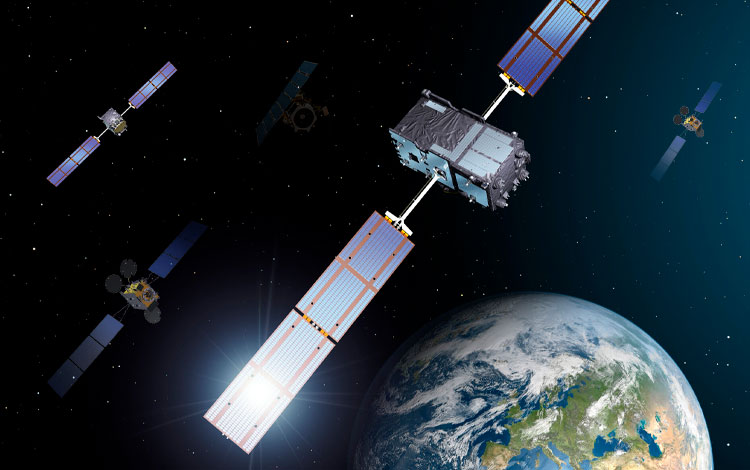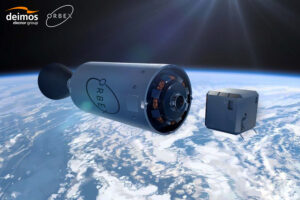The Development of the UK Satellites Infrastructure and Space Sector
22nd Feb 2022
The space era for the UK satellites began in 1962, when Britain launched its first satellite, Ariel-1. The Prospero UK satellite launch followed in 1971, and then the industry paused. Today, almost 60 years later, the UK is in the TOP 10 of the world’s space countries. It’s the first in Europe and second in the world after the USA in the production of small satellites. This was preceded by a long and meticulous work in the space sector, which made it possible to build a powerful satellite infrastructure that would reliably respond to market challenges, leading to more British satellites appearing.
UK Satellites Infrastructure and Space Sector
According to a London Economics report, satellite services support more than £300 billion GDP in the UK’s non-financial sector. Key areas include telecommunications, global navigation (GNSS) and Earth observation. Satellite data is also widely used in agriculture, aviation, navigation, urban infrastructure and economic development, and the energy industry, making British satellites providers crucial for the state economy.
British manufacturers and satellite service providers
Over 80% of more than 1,100 UK space companies and organisations specialise in Space Manufacturing (384) and Space Applications (335). At the same time, the territorial superiority is occupied by London and the South-East of England; 307 of all space sector companies work here. They are followed by Southwest – 107, Scotland – 92, East of England – 87 and East Midlands – 56. It is noteworthy that although Scotland is just the third in the number of companies and organisations, in Glasgow more smallsats (up to 500kg) are made than in all of Europe combined. The largest satellite companies in Scotland are:
- Spire – satellite and data analytics
- Ecometrica – space tech focused on monitoring climate issues
- AAC Clyde Space – advanced nanosatellite spacecraft and mission services
- Astrosat – space services and management
- Alba Orbital – satellite design and build
- STAR Dundee – aerospace engineering
- Bird.i – satellite imaging
Spire (USA) and Clyde Space (Sweden) are international companies the UK cooperates with in the framework of the International Partnership Program. Some other major multinational satellite technology companies in the UK include:
- Airbus (France)
- Avanti Communications (UK)
- Inmarsat (UK)
- Lockheed Martin UK (USA)
- QinetiQ (UK)
- Surrey Satellite Technology (UK)
- Elecnor Deimos (Spain)
- OneWeb (UK)
- Thales Group (France)
One of the most striking examples of international collaboration in recent years has been demonstrated by the British satellites’ operator OneWeb. The company is placing the second-largest constellation of satellites in orbit (648 units) to provide global Internet coverage. These satellites are manufactured by Airbus. Since 2008, the company has also owned one of the largest manufacturers of small satellites in Europe and the world – the London-based company Surrey Satellite Technology, created on the basis of the University of Surrey in 1985.
Government Support for Satellite Companies UK
The government sector is represented by 6 bodies, the main one being the UK Space Agency. It is responsible for all strategic decisions on the UK civil space programme and voices UK space ambitions. Its aims include:
- Encouraging academic research
- Raising the profile of UK space activities domestically and abroad
- Supporting the UK space industry
- Promoting cooperation in the European Space Programme
Other supporting bodies:
- Satellite application Catapult – the acceleration centres network for the adoption of new technologies and economic growth stimulation.
- Innovate UK – Formerly the Technology Strategy Board, which funds, supports and connects innovative businesses to accelerate sustainable economic growth.
- Met Office (United Kingdom’s national weather service) that uses satellite data extensively in its weather and climate services and represents the UK in EUMETSAT.
- The Natural Environment Research Council (NERC) – the leading funder in research of the physical, chemical and biological processes.
- The Science and Technology Facilities Council (STFC) that carries out civil research in science and engineering.
Scientific and Academic Support
Scientific and academic support of the UK satellite infrastructure and space sector is provided by 18 universities and 8 government laboratories throughout the country.
Vital Collaborations for Satellite Companies in the UK
The UK has been a member of the European Space Agency since its inception and is an active participant in many ESA programmes. Most of them are aimed at Earth Observation, the study of the Moon and distant planets, and robotic missions to improve the comfort and safety of astronauts in space. Satellite companies in the UK will surely benefit from such collaborations when the first British spaceport is ready to launch.
Over the decades of the world space race, since the British satellite Prospero was launched, the UK has formed a fairly powerful space and satellite infrastructure and continues to develop it intensively. However, some weak points still remain. The British government is doing everything to fill in the gaps. In 2022, as part of the Launch UK programme, the first UK spaceports are to open in Scotland and England, and new British rockets are expected to lift off. This will allow the country to return to the payload launch market after nearly 50 years of hiatus since the first and only Black Arrow launch vehicle launched the British satellite, Prospero. More UK satellites will follow soon with the promising development of the UK satellite infrastructure.






Thank you for your comment! It will be visible on the site after moderation.